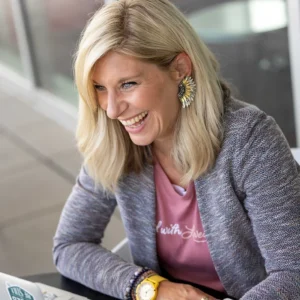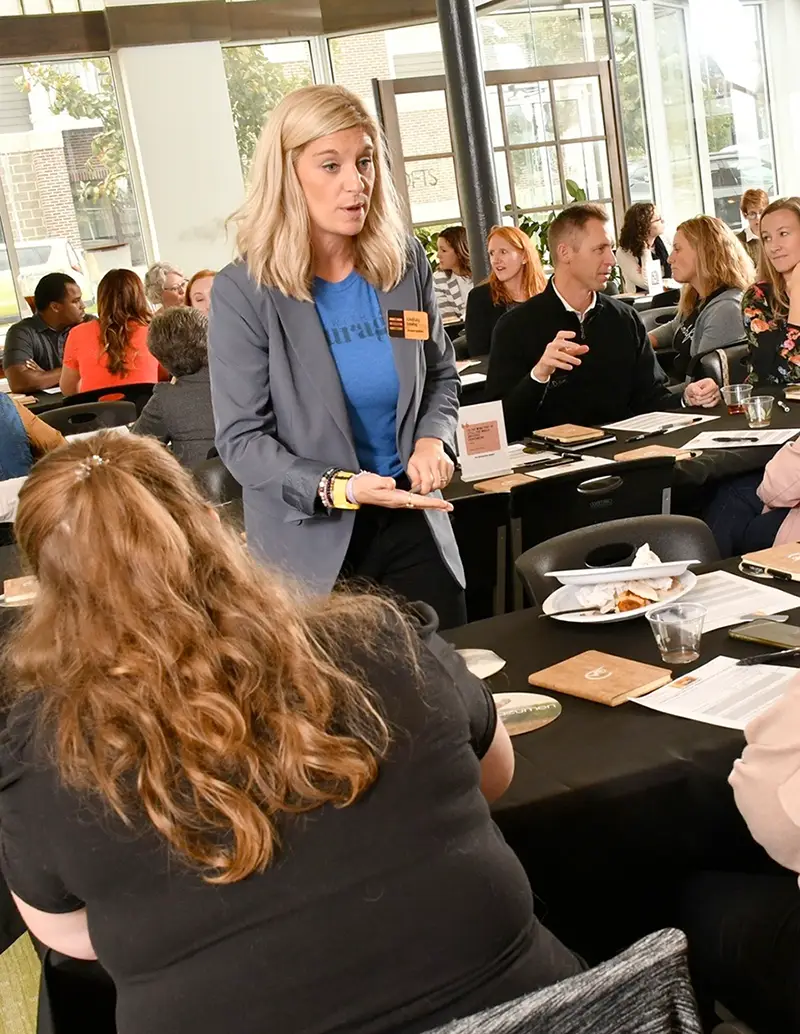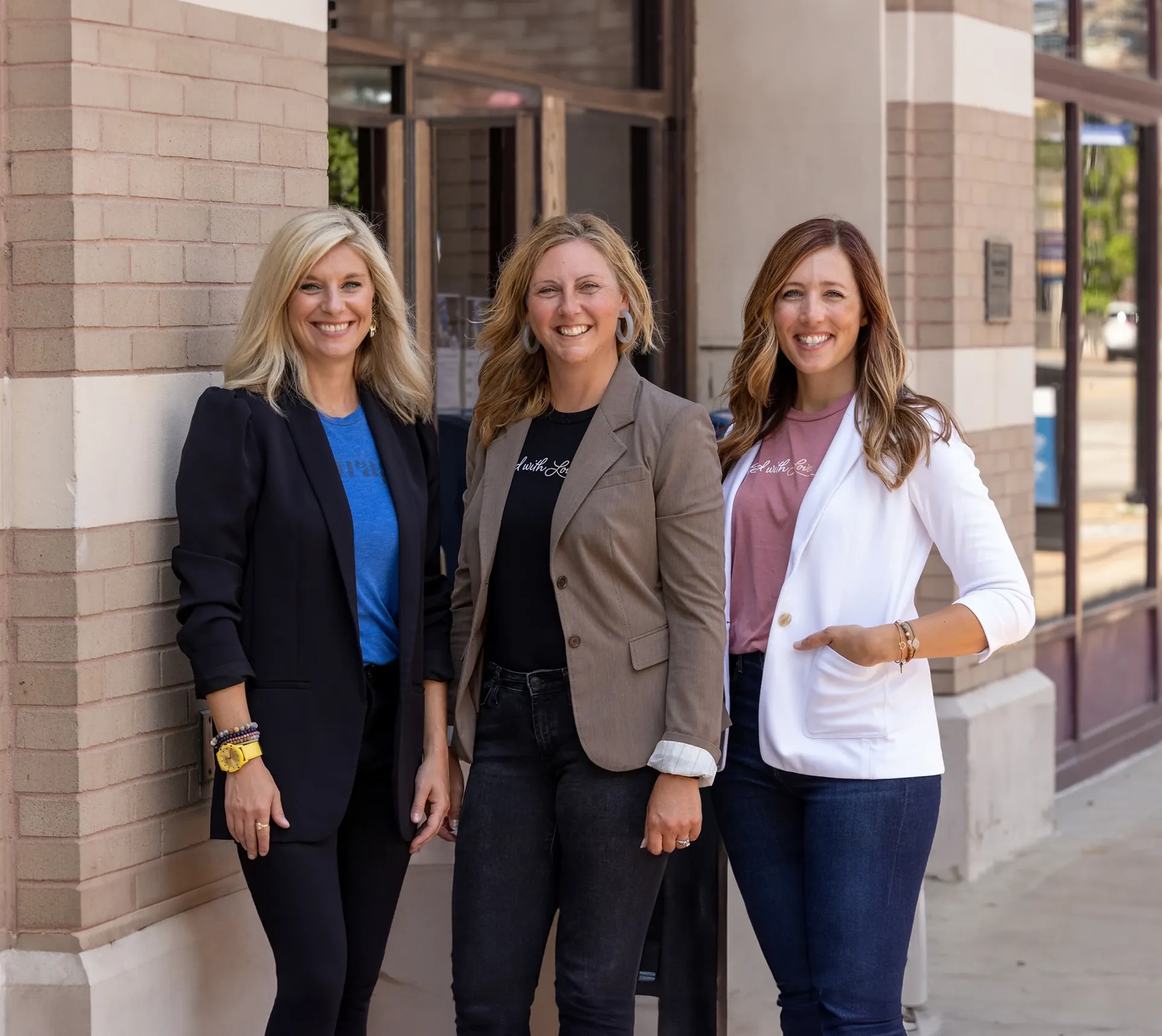These days it seems like everyone is struggling with trust. In almost all organizations we work with, even the best cultures with the best people who have a track record of success together…it can still be challenging. When we ask what has changed, most people can’t pinpoint exactly why.
If we step back and zoom out, reflecting on the past few years, it makes complete sense. It’s easy to extend and earn trust when things are fairly stable and we feel secure…but that’s not what we’ve lived through. The world has been uncertain, felt chaotic. It’s been hard to find stability and comfort that makes building trust easier.
Yet trust remains a fundamental and critical ingredient for success in life and in work. We desire trustworthy people in our personal life, and we expect trustworthy leaders in our professional life. This is just one of the many reasons we have chosen to focus on developing our understanding and skills around trust. In the world of work, the pace of change continues to increase and the demands and stakes continue to rise…so if we are going to navigate it all successfully, we have to have trust. Here are some concepts to consider for building trust:
You must understand your relationship with trust.
Do you believe that trust should be freely extended or that it has to be earned? Based on my life experience, I’ve been a “you’ve gotta earn it” because I’m protecting myself kind of person. Cynical, walls up, defenses heightened, doubting your intention. This has been shifting as I continue my healing journey and I find myself more and more extending trust freely. How about you?
The thing I’ve learned is…you can’t have trust until you are ready to give it. This is the difficult challenge we must face, especially as leaders in our families, teams, communities and world. We want others to trust us before we trust them but that just isn’t how it works. Someone has to take the chance that trust will be broken and they will be hurt in order for there to be any trust at all. It takes courage. True leaders take the risk of trusting others, even though they know they may be hurt.
Whichever side you land, it’s important to understand this about yourself, your friends and family, and your coworkers because it it allows you to adapt your expectations and approach so you can successfully live and work together.
You must trust yourself.
When we ask leaders if they trust themselves, they almost always say yes…until we dig a little deeper. Most of us overcommit and underdeliver, especially to ourselves. “Tomorrow I will get up early to work out.” Tomorrow comes and goes and these small acts of not delivering on our commitments to ourselves erode our self trust.
Another way we don’t realize we break trust with ourselves is when we say one thing while thinking another. We say yes even when we mean no. These actions breed fear, judgment, resentment, doubt and limiting beliefs. We start to assume that other people are thinking and feeling the same way we are. We feel shame and guilt about our thoughts and feelings. This erodes trust with ourselves.
We can start to rebuild that self trust by considering what we really want and need, making commitments to ourselves and keeping them. We can rebuild trust with ourselves by being honest about what we think and how we feel (always in a way that is kind and respectful to others…I’ll tag this topic for another blog post).
While for many of us this may seem and feel selfish, because we’ve always been so focused on others, we have to remember that we can’t give away what we don’t have. If we don’t trust ourselves, we can’t extend trust to others. As you build trust with yourself and honor your own commitments to self, your attitude and actions change in ways that will only support healthier relationships.
You must prove yourself worthy of trust.
Because trust has been a topic that comes up over and over again within the individual leaders, teams and organizations we serve, we spent a lot of time studying and practicing ourselves last year. We stumbled upon a great resource we use as the basis for workshops and lunch and learns. It’s a book by Charles Feltman called The Thin Book of Trust. Feltman points out 4 pillars that we can build and erode trust upon. Our team has found them extremely insightful in practical application. The pillars are:
- Care: We’re in this together.
- Sincerity: I mean what I say, say what I mean, and act accordingly.
- Reliability: You can count on me to deliver what I promise.
- Competence: I know I can do this. I don’t know if I can do that.
The first two are built through personal relationships and the second are built through working together. What we have found is that most leaders are naturally inclined to be focused on either the first two or the second two. The book shares what each look like in practice and practical thing we can do to build trust in each area, so check that out for more information or email us and we’d love to do a workshop for you and your team (info@the-restorationproject.com).
You must understand how you typically prevent or break trust.
I am someone who is more focused on the second two pillars. I can get so caught up in the work to be done, especially in a professional setting, that I forget to slow down to listen and connect to my teammates. I forget to celebrate milestones and show appreciation because I am so focused on the future work to be done. I also love to dream about what’s possible and am a pretty open book, so I throw out crazy ideas or things that I haven’t fully thought through which can come off as insincere.
In order to build trust in the area of care, I have intentionally put a few practices in place. First, I try to build time in between meetings so I can make space for talking about someone’s day, catching up, and really listen. We also worked this into the first 5 minutes of every meeting agenda: a quick check-in (highs and lows, 2 words to describe how you’re feeling, etc.). When someone is talking, I remain fully present and engaged (not checking phone or email).
We put monthly reviews and quarterly celebrations on the calendar so we always have a “container” for recognizing and celebrating progress. We also put recognition on our agendas for our weekly meetings. Something you’d like to celebrate or recognize someone else for. Finally, I make it a practice (literally put it on my calendar) to send regular notes (handwritten and email) because I know it’s something my teammates and clients appreciate receiving. In my personal life, I’ve also made it a practice to reach out to one person a day to let them know I’m thinking of them, and to thank at least one person each day.
As you study your own behavior against the 4 pillars, you may find that while you intend to build trust through one pillar, you are actually breaking trust in another. This is common. At a recent lunch and learn, a participant shared a major a-ha for her using the 4 pillars. She said she tries to build trust by showing she cares and signing up for or saying yes to all the requests that are sent her way. Then she realized that behavior leads her to break trust in the reliability pillar because she’s overextended and doesn’t have the ability to follow through on her commitments.
You must give trust in order to get it.
This is the bottom line. If we work to understand ourselves in the 4 pillars by reflecting on our intentions and actions, and asking for feedback, we will become trustworthy. We will trust ourselves and we will be able to more easily extend trust to others. It’s easy to be focused on what others need to do in order to earn our trust, when it would be much more impactful to spend time looking in the mirror and inside ourselves and the rest will happen naturally. Get the book. Sign up for a workshop. Trust is imperative to a successful life and impactful leadership.

Written by: Lindsay Leahy, Dream Builder at The Restoration Project


